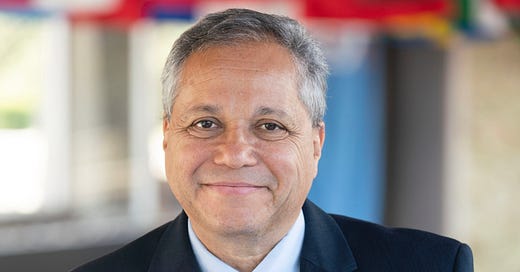COVID-19 taught the world many harsh lessons. We learned that global health is central not only to health and development but also to innovation and industrial policy, economic prosperity, and even national security. It taught us about the importance of science, but also that leadership is the most effective ‘vaccine.’ Most fundamentally the top three lessons of the pandemic were: equity, equity and equity.
The recovery from the pandemic will be long and slow. Since no country was fully prepared, the world needs to improve its defence against pandemic threats, and also apply the lessons learned to threats like climate change and conflict. And since progress at the 2023 mid-point of the health related Sustainable Development Goals (SDGs) is only about a quarter the pace needed to reach them by 2030, like any good sports team the world also needs a strong offence — on maternal, newborn, child and reproductive health; on HIV, malaria tuberculosis and neglected tropical diseases; and especially on non-communicable disease and mental health which account for 70% of deaths and the largest burden of disease and suffering.
Let’s hope 2023 will be a pivot point for global health. I created Global Health Insights to leverage insights from more than a quarter century working in global health against these contemporary issues and challenges.
I have been privileged to have had four careers (or one career in four acts). First, I was (and still am) a Professor of Medicine. This taught me science but most of all I saw people at their most vulnerable and learned about the fragility of human life and the limits of medicine. In this work I was an early proponent of teaching evidence based medicine, open access publishing, and the clinical application of bioethics.
Second, I co-founded a bioethics centre, the University of Toronto Joint Centre for Bioethics. This kindled an interest in global health ethics and most fundamentally global health equity. I also learned about capacity building: the MHSc programme we started has over 300 graduates from Canada and around the world, many leading bioethics in their home institutions.
Third, I co-founded a global health foundation, Grand Challenges Canada, which supports innovators in low and middle income countries to solve their own problems. It has funded more than 1300 innovations in more than 100 countries.
Fourth, I came to WHO in 2017 to support my friend Dr Tedros as his special advisor. Our goal, as laid out in the strategy we developed (called the 13th General Programme of Work), could be expressed in four words: measurable impact in countries. To measure progress, we developed the SDG-based triple billion targets on Healthier Populations, Universal Health Coverage and Health Emergencies. You can read more here.
What these careers had in common was social entrepreneurship: an irritation with the status quo and an attempt to improve patient outcomes using innovative approaches.
They also involved creating, building, strengthening, reforming and transforming institutions, whether start-ups or large, established bureaucracies. And supporting and elevating voices from the global south.
I was never fully vested in the status quo because I always felt like a bit of an outsider. My parents were Holocaust survivors and later refugees from Hungary in 1956. They sent me to a prestigious Canadian prep school so I always felt like I had one foot in the establishment and another outside. Their experience also instilled in me, for want of a better word, a sense of patriotism and desire to give back to Canada, the country that was their refuge from the persecutions (and evils) of Naziism and Communism.
I plan to write about topics in global health including reflections on WHO, which is the central institution in the global health architecture, especially on strategy and governance. I want to explore those approaches that can accelerate progress: innovation, data and delivery, and partnership. I also plan to draw upon my work in ethics and explore issues of equity, character and leadership. Finally, the most frequent question I am asked by young people is about careers in global health, and I plan to discuss that too.
Global Health Insights will be of interest I hope to everyone who is interested in global health. Those tackling other global challenges, and other Sustainable Development Goals, may also find the approaches helpful. I hope Global Health Insights is of particular use to young people in any field as you decide on your future, and to leaders at all levels. I would ask Professors of Public Health, Public Policy, Global Governance, and Global Health to send it to their students; and I am happy to engage with your classes. I want Global Health Insights to be responsive to questions, requests and suggestions.
Please subscribe (for free) and let’s explore these topics together.
Me with Dr Tedros on the day of his election as Director General of WHO in 2017, preparing his acceptance speech.





Peter, you continue to inspire with your insights, wisdom, and constancy of effort. Thank you for all that you do towards a more equitable world.
Looking forward to the journey, Cousin Peter! Am sharing with young people who are interested in a more equitable world.